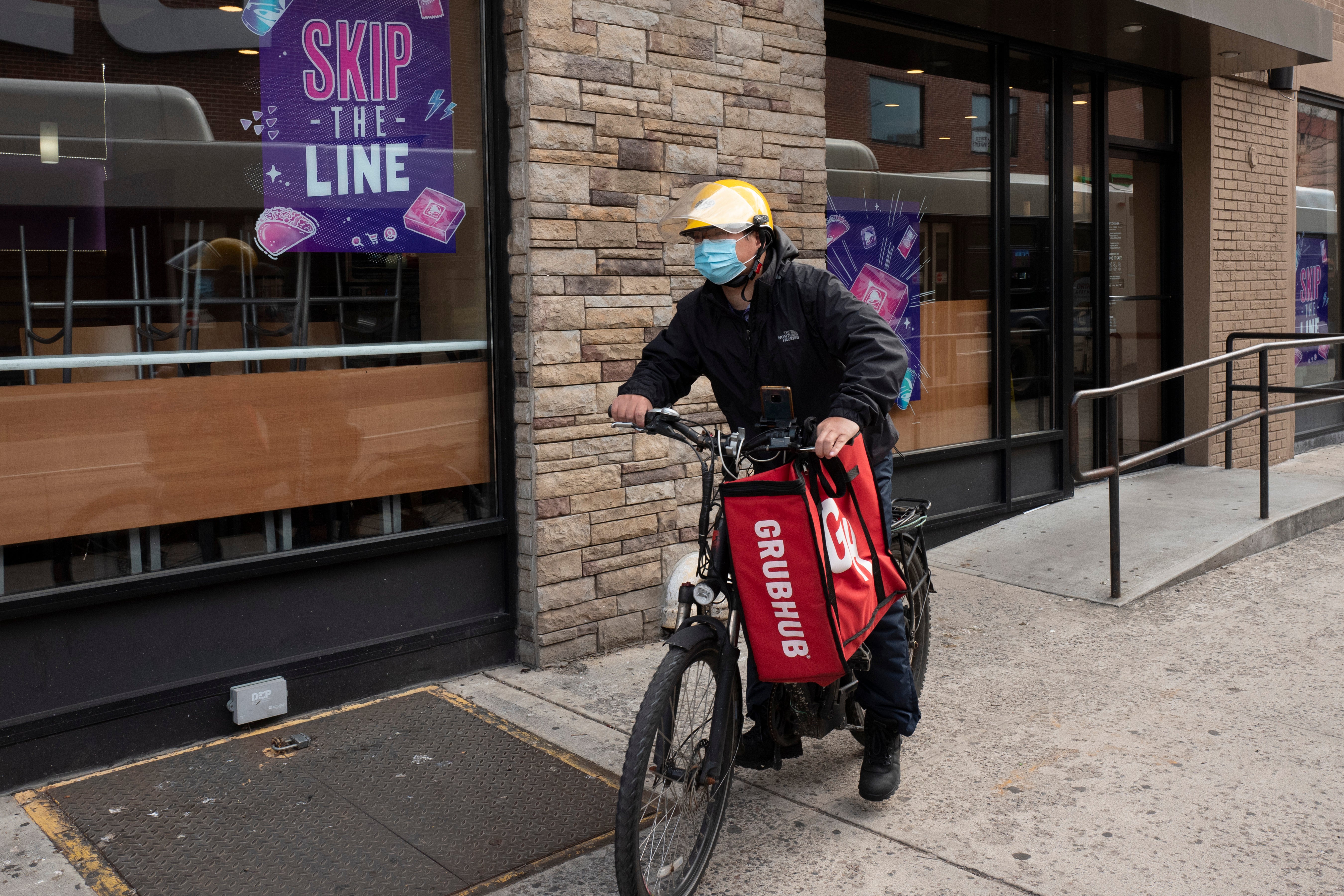DoorDash, Grubhub, Uber Eats sue NYC over price caps
Three of the nation’s largest food delivery companies are suing New York City over a limit on fees it put in place during the pandemic to protect restaurants devastated by the forced closure of their dining rooms

Your support helps us to tell the story
From reproductive rights to climate change to Big Tech, The Independent is on the ground when the story is developing. Whether it's investigating the financials of Elon Musk's pro-Trump PAC or producing our latest documentary, 'The A Word', which shines a light on the American women fighting for reproductive rights, we know how important it is to parse out the facts from the messaging.
At such a critical moment in US history, we need reporters on the ground. Your donation allows us to keep sending journalists to speak to both sides of the story.
The Independent is trusted by Americans across the entire political spectrum. And unlike many other quality news outlets, we choose not to lock Americans out of our reporting and analysis with paywalls. We believe quality journalism should be available to everyone, paid for by those who can afford it.
Your support makes all the difference.Three of the nation's largest food delivery companies are suing New York City over a limit on fees it put in place during the pandemic to protect restaurants devastated by the forced closure of their dining rooms.
The city has continued to extend those caps even as vaccinations allow more indoor dining, costing the companies millions of dollars over the summer, according to the lawsuit.
In the suit filed late Thursday the U.S. District Court for the Southern District of New York, DoorDash, Grubhub and Uber Eats call the fee caps government overreach. The companies say they were “instrumental in keeping restaurants afloat and food industry workers employed” after investing millions of dollars in relief for those businesses.
They are filing for an injunction that would prevent the city from enforcing potentially permanent fee caps adopted in August. The companies are seeking unspecified monetary damages as well at a jury trial.
The delivery platforms that experienced explosive growth during the pandemic are increasingly clashing with local governments who say restaurants and consumers are getting hit with exorbitant fees and high costs.
Last month Chicago officials accused DoorDash and Grubhub of harming the city’s restaurants and their customers by charging high fees and through other deceptive practices. Delivery companies have been the target of legal authorities in other cities and states before, but those efforts have targeted specific policies compared to Chicago’s attack on numerous elements of the companies’ operations. The companies called Chicago's lawsuits baseless.
San Francisco’s district attorney has accused delivery companies of violating California law by classifying drivers as contractors. And Washington, D.C., reached a settlement with DoorDash in 2019 after alleging the company misled customers about how much drivers received in tips.
The Massachusetts attorney general’s office in July filed a lawsuit accusing Grubhub of charging restaurants illegally high fees during the pandemic. The state had capped fees for much of 2020.
DoorDash, Grubhub and Uber Eats claim in their lawsuit that the city of New York first enacted the price cap in May 2020 in response to the COVID-19 pandemic. The companies believed the cap would be temporary. The city capped the rate that third-party platforms could charge restaurants at 15% of an online order for delivery services and 5% for all other services, including marketing.
The companies argue in their lawsuit that New York has continually pushed back the expiration date of the law and that now there's no date at all, therefore making the law permanent. They also claim that the law has cost them “hundreds of millions of dollars" through July.
“The ordinance is unconstitutional because, among other things, it interferes with freely negotiated contracts between platforms and restaurants by changing and dictating the economic terms on which a dynamic industry operates," the lawsuit states.